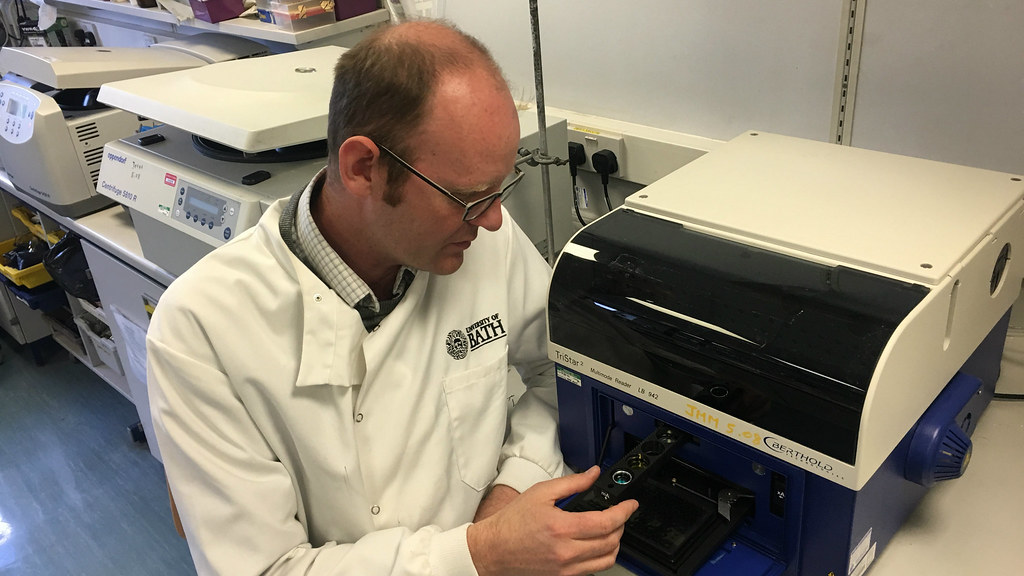Biochemist Dr Jody Mason has been awarded a prestigious Pioneer Award from Cancer Research UK to work on a new way of screening molecules which could become new cancer medicines.
CRUK Pioneer Awards are given to scientists with innovative, higher risk ideas that could revolutionise our understanding of cancer.
Dr Mason’s work will focus on searching for molecules which keep proteins in our bodies working in the way they should. Proteins are molecules that do everything that needs to be done within a cell. This means that the function and activity of a cell is often controlled by how, and when, crucial proteins interact with each other. Our cells function normally by tightly controlling these interactions – but if this breaks down, unregulated interactions can occur and this can lead to cancer.
A challenge researchers face is accurately and easily identifying molecules that can block these unregulated interactions – the potential treatments of the future.
Dr Jody Mason and his team in the Department of Biology & Biochemistry are determined to address this. They have invented a new way of screening cancer cells to find antagonists – molecules or drugs that block the corrupted protein interactions.
This new way of screening could save time, as well as valuable resources. This team is starting by specifically looking for antagonists against proteins that function by interacting with DNA, and which when corrupted can drive cancer growth. This has wider implications too, as these proteins play a central role in many other diseases, including osteoporosis and inflammatory diseases like rheumatoid arthritis and psoriasis.
Their goal is to identify a new generation of antagonists. These could be compounds that show the potential for therapeutic impact, and could be taken forward in drug discovery. Ultimately, this new way of screening could lay the foundations of future treatments for a cancer and other diseases, helping countless patients across the globe.
Dr Mason said: “The Cancer Research UK Pioneer Award was set up to fund innovative, higher risk ideas and so I am delighted to have been awarded this prestigious grant. We’re looking forward to being able test our approach and hopefully identify molecules which could lead to new treatments for cancer and other diseases.”

